UK drugs policy: What you need to know
- Published
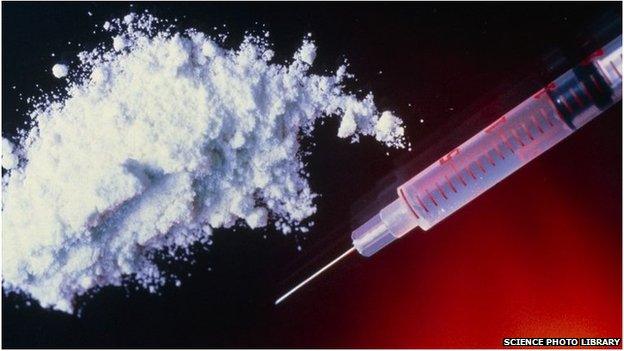
UK drug policies have come under attack from ministers within the coalition government, with senior Liberal Democrats saying current rules are "nonsensical" and arguing for a "smarter approach" to the problem.
They point to a Home Office report which suggests "no apparent correlation" between the "toughness" of a country's drug laws and the level of drug use - but a Tory MP said the Lib Dems had "hijacked" the report for political gain.

What are the current UK drug laws?
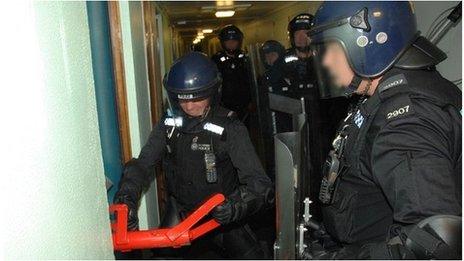
Under the Misuse of Drugs Act 1971, external, illegal drugs are divided into Class A, B and C. Penalties are most severe for Class A drugs like crack cocaine and heroin, and least severe for Class C drugs like khat and anabolic steroids.
Producing or supplying a Class A drug can be punished with life imprisonment, external, while there is a 14-year maximum term for Class B and C.
Possession is treated less severely, with maximum sentences of seven, five and two years for Class A, B and C respectively. Warnings and on-the-spot fines are sometimes given for possession of drugs.

Are drug users given treatment?
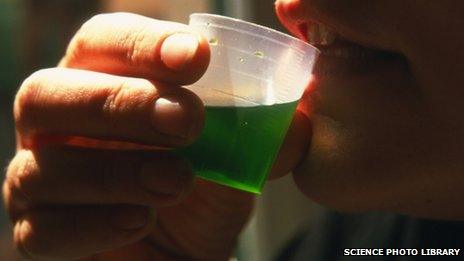
The NHS has a range of services, external for drug users. For people arrested, many police forces and local authorities aim to "identify and work with drug-misusing offenders as early as possible, external".
This process includes drug testing, assessment by drug workers and treatment - or "further legal action where drug users don't want to engage". Offenders can also be given help with life skills, education and training, employment, drug treatment and housing.
The government said funding for these interventions stopped in April 2013, with local authorities and police commissioners "responsible for deciding whether to continue funding interventions in their own area".

Why are the policies being criticised?
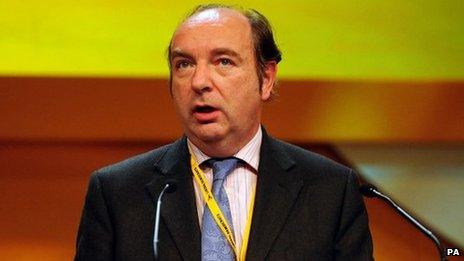
Lib Dem Home Office minister Norman Baker, who signed the foreword of the report along with Home Secretary Theresa May, said jailing people for "a matter of weeks" for possession of Class B or C drugs was a "nonsensical approach". The Lib Dems want drug use to be treated as a health problem rather than a criminal matter.
Think tank Transform, which campaigns for drug policy reform, said prohibition "creates a lucrative and violent criminal market" and drove resources away from healthcare and towards "ineffective law enforcement".
MPs debated drugs policy earlier, after more than 130,000 people signed a petition calling the government to adopt an "evidence-based approach" to deciding on its drugs policy.

What does the government say?
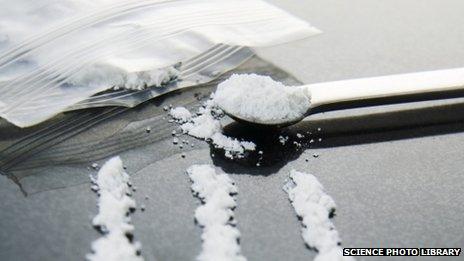
Downing Street said its approach was based on evidence and was "not going to change".
"Our drugs strategy is working and there is a long-term downward trend in drug misuse in the UK," it said.
Tory MP Michael Ellis said the Lib Dems had "hijacked" the Home Office report on drugs policies overseas and were "spinning it" for political reasons.

What is the position on 'legal highs'?
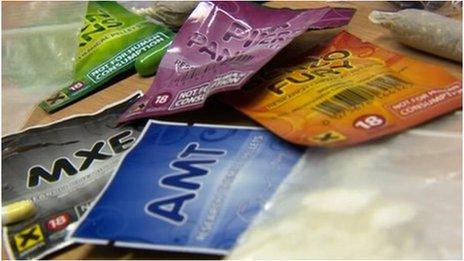
Under current UK laws, drugs are only illegal if they are specifically banned. The term "legal high" refers to a non-banned substance thought to have effects similar to those of illegal drugs like cocaine or cannabis.
When legal highs are made illegal, manufacturers can avoid the law by tweaking the chemical compound and creating a new substance.
The government is now considering legislation similar to that introduced in the Irish Republic four years ago which bans the sale of all "psychoactive" substances but exempts some, such as alcohol and tobacco.
- Published30 October 2014
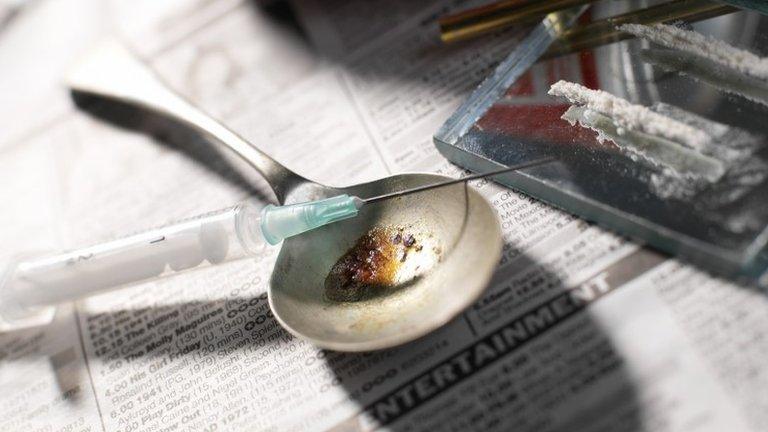
- Published30 October 2014
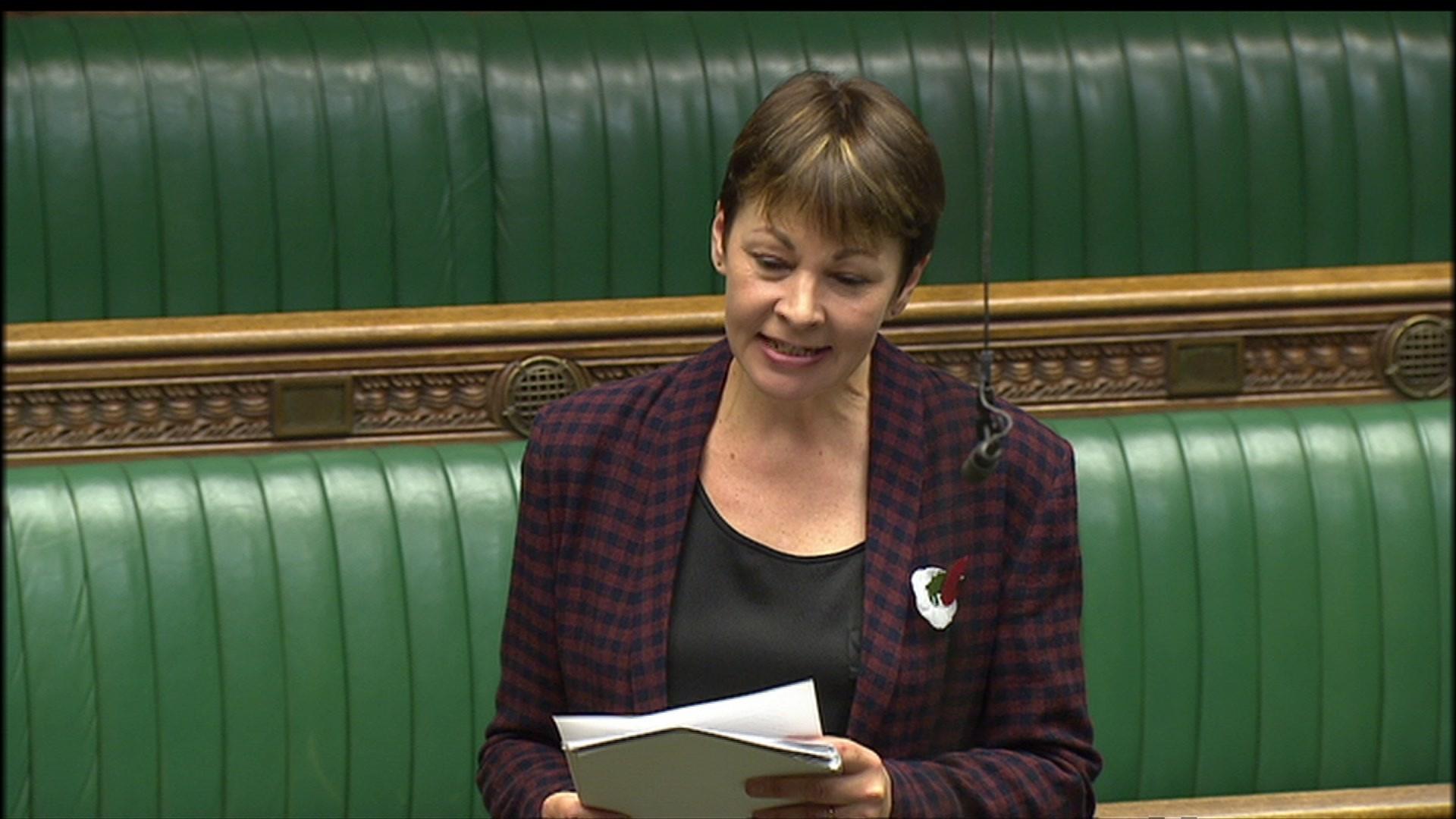
- Published13 September 2014
